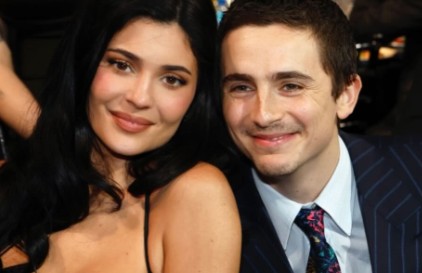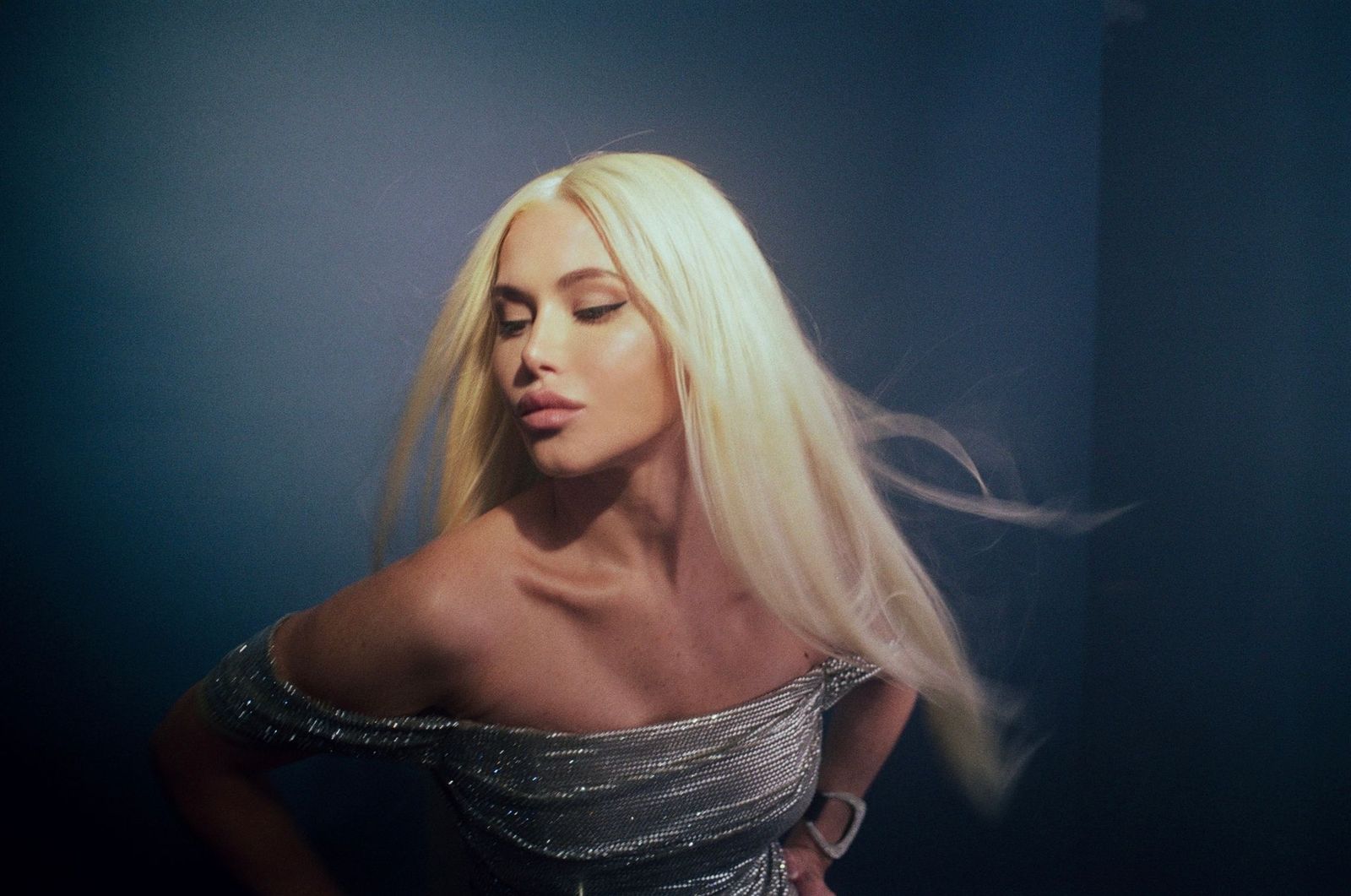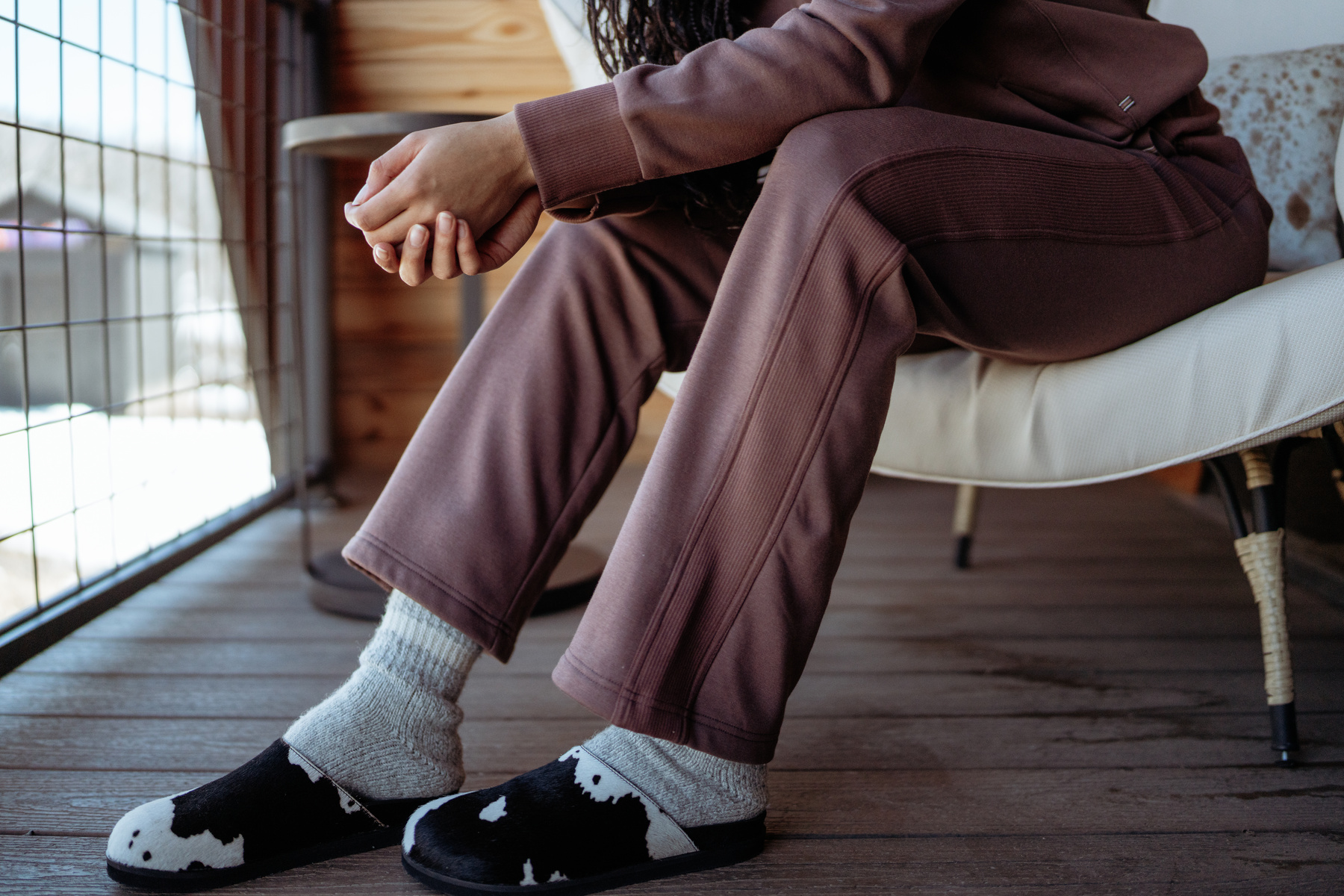
The girl! The jacket! The star of the show!
via NFL
When Amanda Gorman performed her poem “The Hill We Climb” at the 2021 Inauguration, both she and the poem went viral.
Gorman, the first National Youth Poet Laureate and the youngest ever Inaugural poet, immediately became a household name for managing to do the impossible: give a hopeful and earnest message of change at a tense political event while also giving poetry a wider stage.
Gorman’s two unreleased books, the lyrical children’s picture book “Change Sings: A Children’s Anthem” and her debut collection “The Hill We Climb and Other Poems,” are already highly anticipated and a special edition of “The Hill We Climb” is set to be released this Spring with a foreword from Oprah.
Combined with a Time magazine cover, an interview with Michelle Obama, a contract with IMG Models, and her recent performance at the Super Bowl (where she was the first poet to ever read at the event), Gorman is a verifiable celebrity poet.
Apparently we’re overdue for a celebrity poet of this magnitude. According to Columbia University professor Sharon Marcus, “There have been celebrity poets for a long time. It’s more unusual to not have a celebrity poet.” It’s also important to note that “the poet has always been this figure of not just writing, but speech and rhetoric and oration,” he adds, and that there have “always been links between poetry and politics.”
Amanda Gorman’s Super Bowl performance, which saw her giving recognition to essential workers during the pandemic while decked out in another internet-breaking coat, proved that she has all the makings of someone ready to take on the mantle of celebrity poet in a meaningful way. The closest we’ve seen to her in recent years has been Warsan Shire, the British poet who wrote the poetry featured in Beyonce’s Lemonade, and maybe Rupi Kaur, the patron saint of suburban teenage girls.
But often, when we think of poets, we think of an older generation of writers. This frame of mind makes poetry seem antiquated and sometimes inaccessible for people looking for reflections on the current moment. But there are so many young poets, and young Black poets specifically, doing the work of representing and reflecting contemporary issues in exciting ways.
Amanda Gorman is ushering the mainstream towards a form that is more necessary than ever, and opening the doors for other young, Black poets. So as we sit and wait for Amanda’s books to be released, it is important to support other Black poets who don’t have the same platforms and publishing houses behind them, but are as instrumental in the effort to process and persist within our contemporary moment.
Danez Smith
Danez Smith is one of the most recognizable voices in contemporary Black poetry. Their musings on their experience as a queer, Black, HIV positive poet can move from gorgeous to hilarious to heartbreaking within the space of a line. From imagining “alternate heavens for Black boys” in response to police brutality, or expounding on the significance of the word “bitch,” Smith’s poem’s have a vitality that emphasizes their political and personal weight.
Smith is the author of three collections and several chapbooks. Their debut collection “[insert] boy” won the 2014 Lambda Literary Award for Gay Poetry, and their second book, “Don’t Call Us Dead,” was a finalist for the 2017 National Book Award for poetry. They are also the youngest poet to ever receive the prestigious Forward Prize in poetry.
Recommended reading: “my president,” from their most recent collection, “Homie.”Hanif Abdurraqib
Hanif Abdurraqib is a poet, essayist, and cultural critic who writes about niche subgenres and little known facts of movies, music, and pop culture in his poems, with an eye on Blackness and nostalgia. From a quarantine playlist project to catalogue the formative years of 1968 to 2005 in music to his upcoming collection of essays, “A Little Devil in America,” Hanif consistently gives keen, generous insight into the politics of pop culture.
In his poetry, Hanif meditates on the same obsessions. His poetry collections “A Fortune for Your Disaster” and “The Crown Ain’t Worth Much” are meditations on Blackness, celebrity, and culture as much as they are about finding yourself in the world and shaping yourself after the things and people you love.
Recommended reading: “Notes On Ode To Kanye West Ending In A Chain Of Mothers Rising From The River” from “The Crown Ain’t Worth Much”Kara Jackson
After Amanda Gorman became the first National Youth Poet Laureate in 2017, there have since been three other poets awarded the title. College student Kara Jackson was the 2019 National Youth Poet Laureate and has been steadily making her name in the poetry and music world since.
She is a fervent activist — a prison abolitionist, poet and singer-songwriter who aims to “use her voice, activism, and multidisciplinary art to document her lineage of divine womanhood in a country that demands its erasure.” Jackson published her debut collection, Bloodstone Cowboy, in 2019.
Recommended reading: “fleeing”Morgan Parker
Morgan Parker‘s viral fame came in the form of internet hate. Her collection There Are More Beautiful Things Than Beyoncé was met with online hate based on the provocative title alone — slow down, Beyhive … the rest of the line was “The only thing more beautiful than Beyoncé is God, and God is a black woman sipping rosé and drawing a lavender bath.”
Parker’s poems are odes to Black womanhood, to the divine in the ordinary, the space between desire and disgust, and yes, to Beyoncé. Her poems pull the transcendent from daily life, and her essays and her YA novel Who Put This Song On are equally compelling negotiations of Black womanhood.
Recommended reading: “Please Wait (Or, There Are More Beautiful Things Than Beyoncé” in Prelude, Issue 1Anaïs Duplan
Anais Duplan is a trans poet, artist, and the curator and founder of the Center for Afrofuturist Studies, an artist residency program for artists of color in Iowa City. Duplan began his artistic practice as a visual artist but is best known as a poet from his 2016 poetry collection Take This Stallion and his essay collection Blackspace: On the Poetics of an Afrofuture.
Duplan’s work often plays with ekphrasis, the poetic technique of describing a scene or a work of art within a poem. His ekphrastic work blends his experience as a visual and linguistic artist and asks questions about representation of Blackness in art and media.
Recommended reading: “Ode to the Happy Negro Hugging the Flag in Robert Colescott’s “George Washington Carver Crossing the Delaware“”Chekwube Danladi
Chekwube Danladi came to prominence through Cave Canem, the Black poetry collective which aims to discover and support emerging Black poets. As the winner of their 2019 Cave Canem Poetry Prize, Danladi published her debut collection Semiotics in 2020.
Danladi was also joint winner of the 2016 Brunel International African Poetry Prize, and her chapbook, Take Me Back, was included in the New Generation African Poets 2017 boxset. As a Nigerian poet who currently lives in Chicago, Danladi is a New Generation African poet and writes and organizes from a perspective of uplifting “narratives of teleological displacement, suffering and resilience, and sexuality in Afro-diasporic communities.”
Recommended reading: “Spontaneous Repulsion” in BOAAT
Ariana Brown
Ariana Brown came of age in the Button Poetry revolution and has emerged as one of its most emotionally evocative voices. With her poems about her Afro-Latinx heritage, Ariana writes about belonging and finding community and identity amidst one’s family and friends.
Brown is the recipient of two Academy of American Poets Prizes and is a 2014 National Collegiate Poetry Slam Champion. In January 2020, Ariana released her first poetry chapbook, Sana Sana, which follows her digital EP, LET US BE ENOUGH.
Recommended reading: “Supremacy” in Muzzle or on Button PoetryPorsha Olayiwola
Porsha Olayiwola is a queer feminist and futurist, and another product of Button Poetry. She is an Individual World Poetry Slam Champion and the artistic director at MassLEAP, a literary youth organization.
Olayiwola “uses afro-futurism and surrealism to examine historical and current issues in the Black, woman, and queer diasporas.” Her debut collection i shimmer sometimes, too is forthcoming with Button Poetry, and she is the current poet laureate for the city of Boston.
Recommended reading: “Twerk Villanelle,” Redivider Journal- Bernie Sanders and His Mittens Were the Best Part of the Biden … ›
- 10 Things We Wish Had Happened During the Inauguration – Popdust ›














